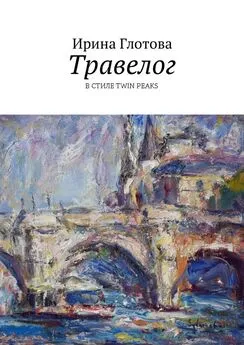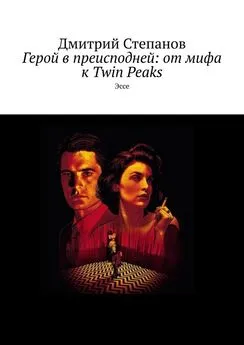Peake, Mervyn - 02 Gormenghast
- Название:02 Gormenghast
- Автор:
- Жанр:
- Издательство:неизвестно
- Год:неизвестен
- ISBN:нет данных
- Рейтинг:
- Избранное:Добавить в избранное
-
Отзывы:
-
Ваша оценка:
Peake, Mervyn - 02 Gormenghast краткое содержание
02 Gormenghast - читать онлайн бесплатно полную версию (весь текст целиком)
Интервал:
Закладка:
It was here, in the communal privacy of their quarters, that the excitement which they had felt mounting within them once they had passed out of the Masters' Hall, lessened; but another kind of excitement quickened. On reaching their quadrangle they had digested the fact that they were free for another evening. The sense of 'escape' had gone, but an even lighter sensation freed their hearts and feet. Their bowels felt like water. Great lumps arose in their throats. There were tears in the corners of their eyes.
All about their quadrangle the pillars of the cloisters glowed (although they were in shadow) with the dark rose-gold of the brick. Above the arches of the cloisters a terrace of rose-coloured brickwork circumscribed the quadrangle at about twenty feet above the ground; and punctuating the wall at the rear of this high terrace were the doors of the Professors' apartment. On each door, according to custom, the owner's name was added to the long list of former occupants. These names were carefully printed on the black wood of each door, their vertical columns of small and exact lettering, all but filling the available space. The rooms themselves were small and uniform in shape, but were as various in character as their occupants.
The first thing that the professors did on returning to their quarters was to go to their several rooms and change their black gowns of office for the dark-red variety issued for their evening hours.
Their mortar-boards were hung up behind their doors or sent skimming across their rooms to some convenient ledge or corner. The dog's-eared condition of most of their boards was due to this 'skimming'. When thrown in the right way, out of doors and against a slight breeze, they could be made to climb into the air, the black cup uppermost, the tassels floating below like the black tails of donkeys. When thirty at a time soared at the sun above the quadrangle, then was a schoolboy's nightmare made palpable.
Once in their wine-red gowns it was the usual custom to step out of their rooms on to the terrace of rose-red brick, where, leaning on its balustrade, the professors would spend one of the pleasantest hours of the day, conversing or ruminating until the sound of the supper-gong called them to the refectory.
To the old Quadman, sweeping the leaves from the mellow brickwork of the quadrangle floor, it was a sight that never failed to please as, surrounded on every side by the glowing cloisters and above them by the long wine-red line of the professors as they leaned with their elbows on the terrace wall, he shepherded the fluttering leaves together with his ragged broom.
On this particular night, although not a single mortar-board was sent skimming, the staff became very flighty indeed towards the end of their evening meal in the Long Hall, when innumerable suggestions were propounded as to the inner reason for the Prunesquallors' invitations. The most fantastic of all was put forward by Cutflower, to wit that Irma, in need of a husband, was turning to them as a possible source. At this suggestion the crude Opus Fluke, in an excess of ribald mirth, crashed his great, raw ham of a hand down on the long table so heavily as to cause a 'corps de ballet' of knives, forks and spoons to sail into the air and for a pair of table legs to do the splits; so that the nine professors at his table found the remains of their supper lying at every angle below the level of their knees. Those who were holding their glasses in their hands were happy enough; but for those whose wine was spilt among the debris, a moment or two of reflection was occasioned before they could regain the spirit of the evening.
The idea that anyone of them should get married seemed to them ludicrously funny. It was not that they felt themselves unworthy, far from it. It was that such a thing belonged to another world.
'But yes, but yes, indeed. Cutflower, you are right,' said Shrivell at the first opportunity of making himself heard. 'Shred and I were saying much the same thing.'
'Quite so,' said Shred.
'In my case,' said Shrivell. 'sublimation is simple enough, for what with the crags and eagles that find their way into every confounded dream I have - and I dream every night, not to speak of my automatic writing, which puts my absurd love for Nature in its place - for in reading what I have written, as it were in a trance, I can see how foolish it is to give a thought to natural phenomena, which are, after all, nothing but an accretion of accidents... er... where was I?'
'It doesn't matter,' said Perch-Prism. 'The point is that we have been invited: that we shall be guests, and that above all we shall do the right thing. Good grief!' he said, looking about him at the faces of the staff, 'I wish I was going alone.'
A bell rang.
The Professors rose at once to their feet. A moment of traditional observance had arrived. Turning the long tables upside down - and there were twelve of them - they seated themselves, one behind another, within the upturned table tops as though they were boats and were about to oar their way into some fabulous ocean.
For a moment there was a pause, and then the bell rang again. Before its echo had died in the long refectory, the twelve crews of the motionless flotilla had raised their voices in an obscure chant of former days when, presumably, it held some kind of significance. Tonight it was bayed forth into the half-light with a slow, knocking rhythm, but there was no disguising the boredom in their voices. They had intoned those lines, night after night, for as long as they had been professors, and it might well have been taken for a dirge so empty were their voices:
Hold fast
To the law
Of the last
Cold tome,
Where the earth
Of the truth
Lies thick
On the page,
And the loam
Of faith
In the ink
Long fled
From the drone
Of the nib
Flows on
Through the breath
Of the bone
Reborn
In a dawn
Of doom
Where blooms
The rose
For the winds
The Child
For the tomb
The thrush.
For the hush
Of song,
The corn
For the scythe
And the thorn
In wait
For the heart
Till the last
Of the first
Depart,
And the least
Of the past
Is dust
And the dust
Is lost.
Hold fast!
NINETEEN
The margin of the forest under whose high branches Titus was standing was an interwoven screen of foliage, more like a green wall constructed for some histrionic purpose than a natural growth. Was it to hide away some drama that it arose there, so sheer and so thick? Or was it the backcloth of some immortal mime? Which was the stage and which the audience? There was not a sound.
Titus, wrenching two boughs apart, thrust himself forward and wriggled into the green darkness; thrust again, prising his feet against a great lateral root. The leaves and the moss were cold with the dew. Working forwards on his elbows, he found his way almost completely barred by a tough network of boughs; but the edge of his eagerness to break his way through was whetted, for a branch had swung back and switched him across his cheek, and in the pain of the moment he fought the muscled branches, until the upper part of his body had forced a gap which he kept from re-closing with his aching shoulders. His arms were forward of his body and he was able to free his face of the leaves, and, as he panted to regain his breath, to see ahead of him, spreading into the clear distances, the forest floor like a sea of golden moss. From its heaving expanses, arose, as through the chimera of a daydream, a phantasmic gathering of ancient oaks. Like dappled gods they stood, each in his own preserve, the wide glades of moss flowing between them in swathes of gold and green and away into the clear, dwindling distances.
When his breath came more easily, Titus realized the silence of the picture that hung there before him. Like a canvas of gold with its hundreds of majestic oaks, their winding branches dividing and sub-dividing into gilded fingertips the solid acorns and the deep clusters of the legendary leaves.
His heart beat loudly as the warm breath of the silence flowed about him and drew him in.
In his last wrench and thrust to escape from the marginal boughs, his coat was tom off bodily by a thorn-tree with a hand of hideous fingers. He left it there, hanging from the branch, the long thorns of the tree impaling it like the finger-nails of a ghoul.
Once the noise of his fight with the branches had subsided and the warm everlasting silence had come down again, he stepped forward upon the moss. It was resilient and springy, its golden surface exquisitely compact. He moved again with a higher tread and found that on landing it was the easiest thing in the world to float off into the next movement. The ground was made for running on, for every step lifted the body into the next. Titus leapt to his right and began to lope off down the dark-green verge of the forest in giant bounds. The exhilaration of these 'flights' through the air were for some while all absorbing, but as their novelty staled so there came a mounting terror, for the thick screen of the forest's verge on his right appeared endless, stretching away, as it did, to the limit of his vision; and the motionless, soundless glow of the oaks and the great spaces of moss on his left seemed never to change, though tree after tree swam by him as he fled.
Not a bird called. Not a squirrel moved among the branches. Not a leaf fell.
Even his feet when they struck the moss were soundless; only a faint sigh passed his ears as he floated, reminding him that there was such a thing as sound.
And now, what he had loved he loathed. He loathed this deathly, terrible silence. He loathed the gold light among the trees, the endless vistas of the moss - even the gliding flight from footmark to footmark. For it was as though he were being drawn towards some dangerous place or person, and that he had no power to hold himself back. The mid-air thrill was now the thrill of Fear.
He had been afraid of leaving the dark margin on his right, for it was his only hold upon his location; but now he felt it as part of some devilish plan, and that to cling to its tangled skirt would be to deliver himself to some ambushed horror; and so he turned suddenly to his left and, although the vistas of oakland were now a sickening and phantom land, he bounded into its gold heart with all the speed he could.
Fear grew upon him as he careered. He had become more an antelope than a boy, but for all his speed he must have been a novice in the art of travel - through moss-leaping - for suddenly, while he was in mid-air, his arms held out on either side for balance, he caught sight, for the merest fraction of an instant, of a living creature.
Like himself, it was in mid-air, but there was no other resemblance. Titus was heavily if sparsely built. This creature was exquisitely slender. It floated through the golden air like a feather, the slender arms along the sides of the gracile body, the head turned slightly away and inclined a little as though on a pillow of air.
Titus was by now convinced that he was asleep: that he was running through the deep of a dream: that his fear was nightmare: that what he had just seen was no more than an apparition, and that though it haunted him he knew the hopeless absurdity of following so fleeting a wisp of the night.
Had he thought himself awake he must surely have pursued, however faint his hope of overtaking the slender creature. For the conscious mind can be set aside and subdued by the emotions, but in a dream world all is logic. And so, in fear of the gold oakwood of his dream, he continued in his loping, effortless, soundless, dream-like bounds, deeper and deeper into the forest and over the elastic velvet of the moss.
Читать дальшеИнтервал:
Закладка:



